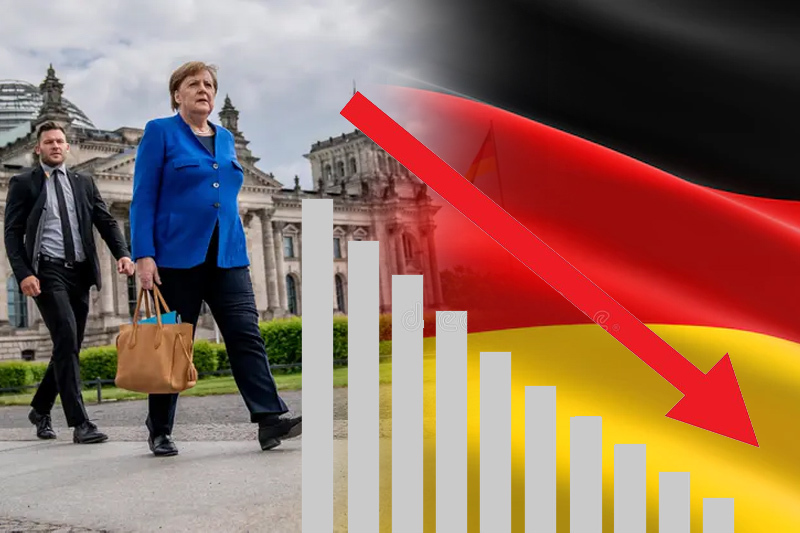
Recession hits Germany as Q1 GDP falls by 0.3%
A recession is usually represented by two successive quarters of decline. Compared to the previous three months, the German economy contracted in the first quarter of 2023, thereby entering a recession, data from the statistics office revealed Thursday.
Following a decline of 0.5% in the fourth quarter of last year, a second estimate showed GDP dropped by 0.3% in the first quarter after price and calendar adjustments. The first estimate had shown GDP stagnating in the quarter and the country going around the edge of a recession.
Under the pressure of deepening inflation, consumers are immensely struggling, pulling the entire German economy down with them, said Andreas Scheuerle, an analyst at DekaBank. On adjusting for price, seasonality and calendar, household consumption was down 1.2% QOQ.
Keep Reading
Government spending also saw a significant drop of 4.9% on the quarter. ING’s global head of macro Carsten Brzeski said an easing of supply chain frictions, a rebound in industrial activity and the warm winter weather were not sufficient to get the economy out of the danger zone.
But investment got a massive boost in the first three months, following a weak second half of last year. Compared with the previous quarter, investment in construction increased by 3.9%, while investment in machinery and equipment went up by 3.2%.
Trade also managed to make certain positive contributions. While imports fell 0.9%, exports rose 0.4%. But now the question is although Germany could not avoid entering a recession, will there be any recovery in the second half of 2023? The German Bundesbank expects the economy to see modest growth in the second quarter.




